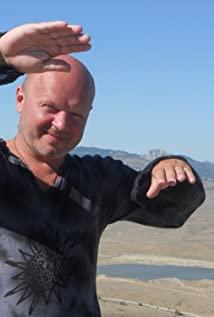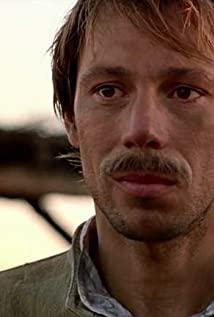Published at EU Film Festival 2019
The story takes place in the first autumn of Leningrad after World War II. It tells the helplessness and pain of people who don't know how to adapt to the post-war life after regaining tranquility and peace. As a highly literary story, the director focuses his perspective on a tall woman, who implicates the living conditions of the people around her. Rich colors, sophisticated photography, and restraint in emotional mastery give this film its allure. As a Russian candidate for the best foreign language film at the Oscars, "The Tall Man" won the Best Director Award in the "Un Certain Regard" category at the 72nd Cannes Film Festival.
The film chooses a serious subject----- "war and history", but does not focus on the battlefield of fighting and killing, but describes the life of a group of post-war survivors : they survived the war, but With more or less psychological or physical problems. Although their lives have been extended, the war is still traumatized, and they need time to learn to live a normal life.
"The Woman Who Can't Be Ignored"
The film opens with Iya's twitching voice-over , and we see a tall woman on screen, with a delicate face and a bit of a clumsy demeanor. She is half a head taller than ordinary men, so she hunches her back unconsciously when she walks. The overly tall figure did not give Iya any advantage in appearance, but showed her lack of self-confidence vividly. She longs for love and longs to be loved, but she is also in love and cannot distinguish herself.
Although the director runs through Iya's perspective, he actually set up a double heroine. Iya is ice, Masha is fire, one cold, one warm. Therefore, the mirror structure of Iya\Masha constructs a more complex and entangled character relationship. Martha was a comfort woman who caused her repeated miscarriages and eventually became infertile, so she longed to have a child, but she couldn't. Compared to Martha's unrestrained initiative, Iya is shy, even dull. Masha enjoys the pleasure brought by the opposite sex, but Iya is extremely resistant. The actor who plays Iya, Victoria , was born in the Siberian city of Irkutsk in 1994. She graduated from the Russian Academy of Dramatic Art in 2019. The actor who plays Masha, Vasilysa , was born in Moscow in 1996 and graduated from Grassi in 2019. Muff College, "The Tall Man" is both their feature film debut.
Iya has been hinted by the opposite sex many times, but Iya often chooses to ignore it. Her heart is extremely fragile. She carefully protects the beauty in her heart and cannot put her inner melancholy. She once went to the front line as an anti-aircraft artillery, but the high-decibel shock also brought her sequelae. She would convulse involuntarily, and even lost consciousness and could not control herself, so she ended Pashka's life in one attack. .
Although the film describes the living conditions of people after the war, it obviously focuses on the living conditions of women after the war : some of them are the wives of wounded soldiers, and although their husbands return from the battlefield triumphantly like heroes, they are disabled and unable to move; High-ranking female officials feel uneasy when they are applauded by the wounded after the war; some are high-level intellectuals. Martha falls in love with a restrained and humble young man, Sasha. Although Sasha's mother knows Martha's difficulties well, she does not want her own. The son takes such a woman as his wife. The director focuses on the development of the fate of women, especially those who fought in World War II. According to statistics, World War II was the war with the highest participation of women. Together, these female characters make up the entire film, making it even more full.
"Besides living, what do we have?"
Iya and Martha are one of the vulnerable faces after the war. Although they are alive, it is difficult for them to have the initiative in life. The female writer Alexievich once took a tape recorder and a notebook and spent more than 4 years interviewing many women who participated in the Great Patriotic War . The cruelty of war is displayed in front of readers one by one.
Although the post-war city was devastated, the director used rich colors to make the whole picture come alive. The director admitted that the film has a special color palette. When he began to study the diaries of people during World War II, he found that although the people of that era lived in havoc, they were still surrounded by bright colors . Thus, the conflict between bright colors and the nature of postwar life becomes interesting. The large greens and reds that appear in the film, the retro tones make the whole film unique. Although Iya and Martha have different personalities, the director did not make too many differences in clothing. They are often just sitting there, one tall, one petite, red and green, equally dazzling and equally dazzling.
The director focuses the audience's point of view on the faces, eyes, and arms of these post-war heroes, feeling the effects of the war from their bodies, not just how many buildings were destroyed by the war. Even though the real war has passed, the inner struggle and resistance has never stopped. Although the war has passed, the post-war is actually a war without gunpowder smoke. People have to learn to make up for regrets, lick their wounds, cherish the moment, and adapt to the various sequelae brought about by war.
In order to make the whole film more realistic, the crew put a lot of effort into many details . For example, the tram in the film was borrowed from the museum. In a close-up shot at the hospital, production crews had to design and build custom foldable pillows. To make the bandages look more realistic, the crew soaked the bandages in tea and dried them on a radiator before shooting, which made the bandages look like they had been washed many times. Martha's war wounds , and the surgery she had to undergo, were determined by a team of medical experts where she should be scarred, and they did extensive research to determine what those scars should look like. The spray painting of the hospital walls was carried out during filming and went through three stages. At the last stage, we can see that the hallway has been completely renovated. The producers came up with the idea and the director liked it, so we see the walls painted in the color of the intermission at the end of the film.
In May of this year, HBO released a popular TV miniseries "Chernobyl" , which directly attacked the Chernobyl incident, which further triggered the audience's many obstacles to the construction of people's mental health after the nuclear disaster. s concern. In the face of huge disasters, everyone is extremely vulnerable, and the shadows brought by disasters lurked on victims for a long time, and even lingered. On another level, victims have to learn to play with themselves, with pain, and with the past.
"The Brilliant Brilliant of Young Directors"
The fine art, exquisite photography and lively performances of the actors in "The Tall Man" have brought new vitality to the film. As one of the hottest young directors in Russia, Balagov was born in 1991, but he has long been Showcasing his outstanding film talent.
Balagov made his feature-length debut in 2017, Intimacy , about the state of alienation, and his skillful audiovisual language earned him a Cannes Un Certain Regard nomination, while 2019's "Intimacy" Tall is the best director for Un Certain Regard. When Balagov was a student, he shot many short films and documentaries, and participated in various activities at home and abroad.
Balagov studied at the Nalchik Film Academy . As a young director, his choice of film themes showed maturity different from his age. The world audience sees the real side of the country.
Also shortlisted for the Un Certain Regard in Cannes, the Belgian young director Lucas de Hoot (2018's "Girl"), who was also born in 1991, is often compared by fans. But Lucas and Balagov's styles are very different, but there is no doubt that both have displayed the brilliance of genius.
"Tall Man" describes the hardships and sufferings of the people after the war with extreme restraint. The whole film does not have any music rendering, and a large number of simultaneous sound efforts strive to create a real sense of the scene. Even the music when the final subtitles appear is broken. Then there will be a heavy feeling in my heart. However, the past cannot be forgotten, and the heavy history cannot be overshadowed by the years. We also look forward to more young directors to dig out more novel themes and create more moving screen moments.
View more about Beanpole reviews











